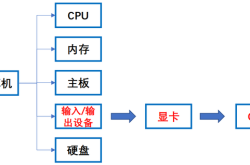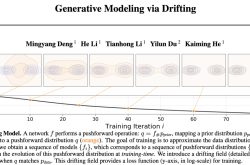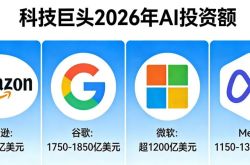Major automakers tightening their belts
![]() 11/19 2024
11/19 2024
![]() 658
658
It is widely known that this year has been tough for automakers, but the reality seems even grimmer than anticipated. A wave of layoffs has exposed the plight of overseas automakers.
On November 7, German magazine Manager Magazin reported that German automaker Audi is seeking to reduce its workforce by cutting jobs outside of production in the medium term, aiming for a reduction of about 15%. Audi confirmed that management is currently negotiating with worker representatives but declined to disclose the specific number of layoffs.
On the same day, Nissan announced a plan to achieve "healthy growth," including cutting ¥300 billion (about $1.9 billion) in fixed costs and ¥100 billion (about $649 million) in variable costs while maintaining healthy free cash flow. Nissan President and CEO Makoto Uchida voluntarily reduced his monthly salary by half and proposed immediate implementation of the measures, with other executive committee members also taking voluntary pay cuts. Ten days earlier, at a meeting at Volkswagen Group's headquarters in Wolfsburg, Germany, Daniela Cavallo, chair of the Volkswagen Group Works Council, revealed that Volkswagen planned to close at least three German factories, affecting tens of thousands of jobs. Nissan President and CEO Makoto Uchida stated that the company is currently "facing a severe situation." Arne Meiswinkel, head of personnel for the Volkswagen brand, also said, "We urgently need to reduce labor costs to maintain our competitiveness. This requires the contribution of the workforce."
Poor market performance has driven several major automakers to collectively lay off employees. Nissan's financial report revealed that in the second fiscal quarter (July-September), net revenue was ¥2.99 trillion, down 5% year-on-year; operating profit was only ¥31.9 billion, down 84.7% year-on-year, with a net loss of ¥9.3 billion. For the first half of fiscal 2024 (April-September), Nissan's net revenue was ¥5.98 trillion, down 1.3% year-on-year; operating profit was ¥32.908 billion, down 90.2% year-on-year; and net profit was ¥19.223 billion, down 93.5% year-on-year. In the third quarter of this year, Audi's revenue was only €15.322 billion, down 5.5% year-on-year. Operating profit was only €106 million, down 91% year-on-year. For the first three quarters of this year, Audi Group's revenue was €46.3 billion, down 8% year-on-year; operating profit was €2.09 billion, down 54.6% year-on-year.
Audi's downturn has dragged down Volkswagen Group's financial performance. Volkswagen Group's third-quarter financial report showed that revenue was €78.48 billion, down 0.5% year-on-year, but operating profit was only €2.86 billion, down 42% year-on-year; net profit was €1.57 billion, down 63.8% year-on-year. For the first three quarters of this year, Volkswagen Group's revenue was €237.279 billion, up 0.9% year-on-year, but operating profit was only €12.907 billion, down 20.5% year-on-year. The financial reports indicate that the market performance of several major automakers has been relatively weak. Especially in the Chinese market, sales of several major players have all declined.
In the first half of fiscal 2024, Nissan sold a total of 1.6 million new vehicles globally, down 4% year-on-year. In the first 10 months of this year, Nissan's sales in the largest market, the United States, declined by 30%; sales in China declined by nearly 10%. For the first three quarters of this year, Audi Group delivered 1.25 million vehicles, down 10.9% year-on-year. In the U.S. market, Audi sales were down 16.8% year-on-year; sales in Europe and China declined by 9.8% and 8.5%, respectively. For the first three quarters of this year, Volkswagen Group sold 6.524 million vehicles globally, down 2.8% year-on-year. However, in the Chinese market, Volkswagen delivered only 2.057 million vehicles, down 10.2% year-on-year. In addition to Audi, sales of Volkswagen's Porsche brand also declined. In the third quarter of this year, Porsche, Volkswagen's luxury brand, recorded its lowest quarterly sales in nearly a decade in China.
Competition in the Chinese automotive market has intensified over the past few years. To maintain market share, major automakers have rolled out numerous eye-catching new products, accompanied by a constant wave of price wars. Products are becoming increasingly superior and cheaper. The advantages of joint venture brands are gradually being diluted, and their appeal is declining. Meanwhile, the rapid development of electrification and intelligence in automobiles is changing consumer demand, thereby accelerating the restructuring of the Chinese automotive market. Currently, hybrid vehicles, intelligent driving, smart cabins, and large refrigerated TV consoles are becoming increasingly popular. Chinese automakers have quickly responded to market demand, increased investment, and gained a product advantage, stepping into the spotlight and becoming increasingly dominant. In contrast, overseas brands in China have been significantly slower, with their main sales models still being traditional automobiles, gradually losing market favor. "We were a bit slow in the transition to new energy, and our new products and technologies have not kept up with the development and pace of the current Chinese automotive market," Zhou Feng, vice president of Dongfeng Motor Corporation and deputy general manager of Dongfeng Nissan Passenger Vehicle Company, admitted in a recent interview with the media.
However, Volkswagen and Nissan are also accelerating their electrification and intelligence efforts. Recently, Zhou Feng revealed that Dongfeng Nissan has signed a strategic cooperation agreement with Huawei. In the future, Dongfeng Nissan will apply Huawei's core technologies to enhance the vehicle's intelligent connectivity and human-computer interaction capabilities. Zhou Feng believes that Nissan has no flaws in basic areas such as safety and comfort but lacks in addressing the perceptions and experiences of customers in the new era. Additionally, Dongfeng Nissan's collaborations with technology companies such as Momenta, iFLYTEK, and NVIDIA are ongoing, and the R&D center plans to expand from 2,000 to 4,000 employees. During the recent CIIE, Nissan announced that it is accelerating its transition and layout in electrification and intelligence to meet the diverse needs of the Chinese market. By fiscal 2026, Nissan plans to launch eight new energy vehicle models specifically for the Chinese market, with five models under the Nissan brand.
Audi is moving even faster. Currently, the Audi Q6L e-tron, the first model developed based on the PPE platform, is about to be launched on the market. Meanwhile, Audi has also launched a new "AUDI" brand in collaboration with SAIC Motor, with three new models to be introduced specifically for the Chinese market. Audi has been collaborating with Huawei for several years. Many new Audi models to be launched in China in 2025 will be equipped with Huawei's intelligent driving system. Audi has previously announced that it will "extend" its pure electrification process and expand research and development of plug-in hybrid vehicles. It is reported that the all-new Audi A5L will also introduce a plug-in hybrid version.
Volkswagen is not only moving fast but also making bigger moves. In 2022, Volkswagen announced that its software company CARIAD had formed a joint venture with Horizon Robotics to strengthen its intelligence capabilities. In 2023, Volkswagen and XPeng reached a technical framework agreement to jointly develop two electric vehicle models for the Volkswagen brand, scheduled for launch in 2026. In July this year, the two parties signed a strategic cooperation agreement for joint development of electronic and electrical architecture technology. Models based on the jointly developed electronic and electrical architecture are expected to enter mass production in about 24 months. In November 2023, it was reported that FAW-Volkswagen planned to establish a new new energy vehicle sub-brand to develop new hybrid models. This news was confirmed by FAW-Volkswagen in January this year. At the end of June, the Volkswagen Group and SAIC Motor signed a technical cooperation agreement. According to the agreement, the two parties will jointly develop three plug-in hybrid models and two pure electric models in China, which are expected to be launched on the market from 2026 onwards.
Final Thoughts: In the past two years, many overseas automakers have faced severe market challenges, with the Chinese market facing more pronounced constraints. However, the trend of electrification is irreversible, and the core advantages that these automakers have long relied on are being diluted. Currently, while tightening their belts, they must also adapt to market trends and face competition head-on. Fortunately, these automakers have become aware of this and are actively joining in. They are waiting for the future.
(Images sourced from the internet. Please remove if infringing.)








